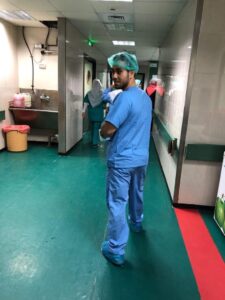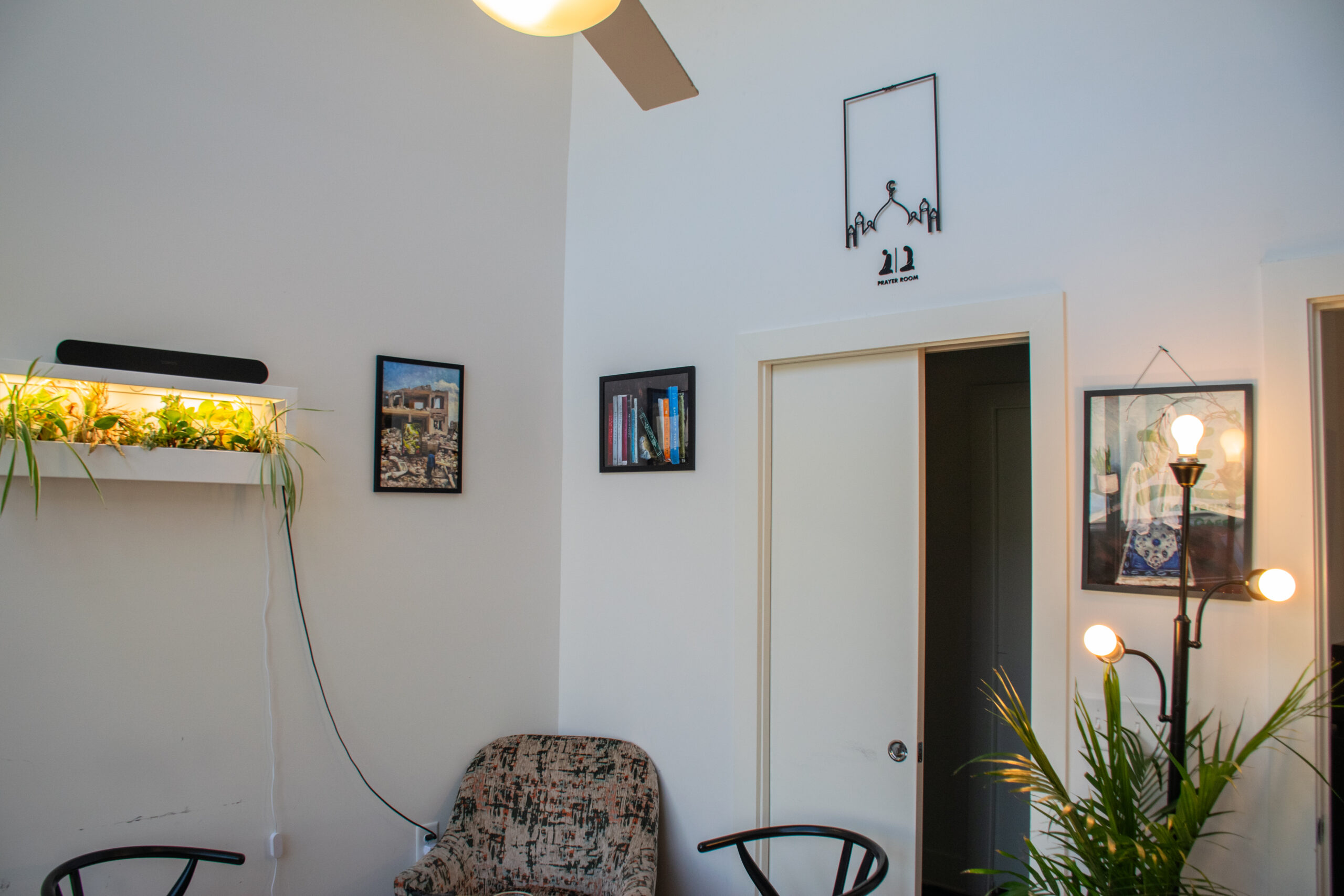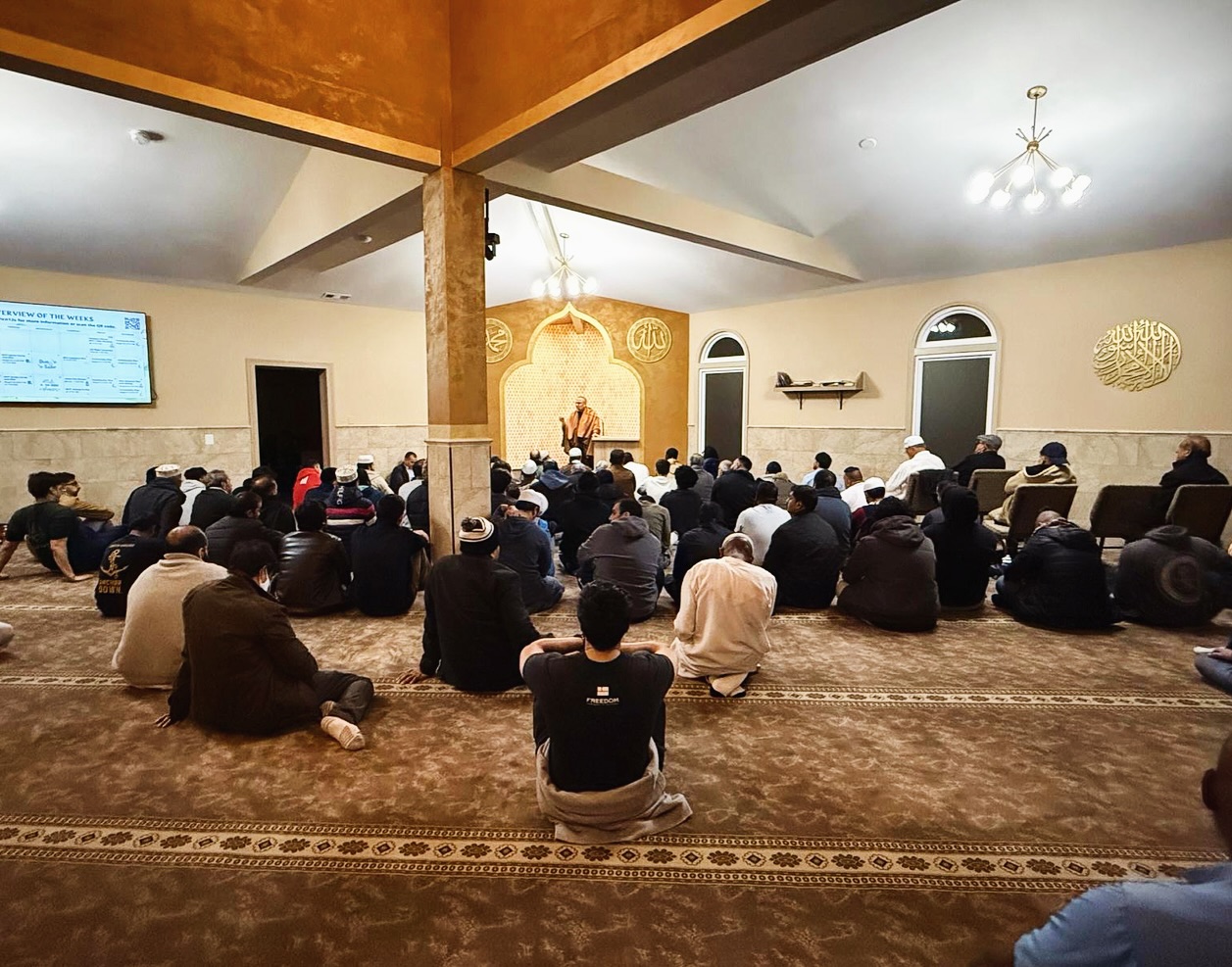
Yousef Gumiza is a rare native Nashvillian — but he didn’t grow up here.
After completing his first couple years of school at Nashville International Academy, his mom, who is from Gaza, decided to move the family back to her homeland. And that’s where Gumiza stayed, until recently.
When he returned to a Nashville very unlike the one he knew two decades ago, he found himself desperately missing the sober nightlife he’d come of age with in the Middle East. So, he moved up what he refers to as his “retirement plan” — opening a late-night coffeehouse in Wedgewood-Houston, Deir Cafe. WPLN featured the shop in our recent reporting on the Muslim-owned cafes leading Nashville’s sans alcohol scene during, and after, Ramadan.
Exactly one week later, Gumiza sat in his coffeeshop, flanked by walls covered in supportive messages from customers. These sentiments came during the ceasefire. Now, Israel has begun airstrikes, again, on Gaza.
Gumiza is trying not to draw parallels to the first time he tried to build a cafe — with his cousin on their ancestral land in Gaza. That time, the meeting with the developer was suddenly postponed.
“You know what day that was?” Gumiza asked. “October 7, 2023.”
 Courtesy Yousef Gumiza
Courtesy Yousef Gumiza Gumiza’s family land, where he planned to build a cafe with his cousin
The family’s plot was hit with four missiles in the returning fire from Israel after Hamas attacked earlier in the day, killing 1,200 Israelis.
“It’s fixable,” Gumiza said of the property. But he’s scrapped the cafe plans until there’s a real end to the war, not just a ceasefire.
“It was, like, let’s say half — half kind of expected,” he said. “Like, at least me, I’ve been there almost 20 years of my life. I know how … this (goes). Every time, it’s the same. They actually break their word.”
 Courtesy Yousef Gumiza
Courtesy Yousef Gumiza Dr. Yousef Gumiza heads into surgery at Al-Shifa Hospital in Gaza.
Gumiza is no stranger to the cycle of violence in the region. His career in Gaza was as an emergency room doctor during a period in which border protesters were often coming in wounded.
“I was seeing, in the ER, a lot of kids. They were just, you know, throwing rocks and all that at the borders and (Israel’s military) was just shooting people back … I dealt with a lot of bad cases. And I was working almost for a whole year. A whole year, I didn’t even take one day off.”
He burnt out eventually and decided to follow his parents back to the U.S., and Nashville. Here, he got through the United States Medical Licensing Examination, or USMLE, Step 1 last fall, but has yet to decide whether to go further.
“I got overwhelmed. I didn’t want to be around patients anymore,” he said. “I just want to have my license. Still, I don’t know if I’m willing to go through all that again or not.”
But Gumiza is not the only doctor in the family. His uncle is a cardiologist in Gaza, and still, during this most-recent conflict, he couldn’t find care for his ill father, Gumiza’s grandpa. He died in his son’s arms, in an overflowing hospital.
“We lost, like, a good number,” Gumiza said. “Like, I lost my cousins. I lost 16 in one hit. They actually strike the whole building — like four of my cousins and their wives and their, actually, kids. Just 16, in one second, disappeared.”
According to the United Nations, 1,200 Israelis and 48,000 Palestinians have been killed as of March 4, 2025. That number does not include the additional 400 Palestinians killed in Tuesday’s airstrikes. (The death toll of both individual incidents and the overall total varies widely depending on who is reporting, Israel or Hamas.)
Gumiza says every Palestinian has lost people — plural. As he shared about his loved ones who were killed, he spun a string of black beads through his fingers.
“This is called subha,” he explained. “So, we use it to remind us, when we have time, to say prayers to God, and (it) just reminds us all the time he’s around us and just mention him in our hearts. We have this saying even in our religion: When you mention his name, he mentions you on his throne.”
The prayer he has kept coming back to right now is one asking for continued strength — and patience.
“(Palestinians) always know how to survive. That’s our thing. We are survivors,” Gumiza said. “And I believe our main factor is our faith. We believe how much pain we went through, we are going to be paid back. Like, you know, that’s our faith. That’s the spiritual side of any human. If you have that, nothing can beat you. You can actually go through everything.”
 Rachel Iacovone WPLN News
Rachel Iacovone WPLN NewsThe prayer room in Deir Cafe
The broader community reacts
At the Islamic Center of Nashville, members were gathered for evening prayers when news came that Israel had broken the ceasefire. Ossama Bahloul has been ICN’s imam since 2016.
“If you have a member of a community who lost his entire family in Gaza — literally — I don’t think I can say anything to him. We try our very best to our community with limited resources, and we try to stand with each other as much as we can. But it’s very hard. It’s very hard for everyone.”
 Islamic Center of Nashville Facebook
Islamic Center of Nashville FacebookImam Ossama Bahloul leads prayer at the Islamic Center of Nashville during Ramadan 2025.
The timing, during Ramadan, has made this particularly hard on the mosque, which is hosting several services daily. During the women’s recitation of the Quran the following day, the worshippers burst into tears.
“Many of them cried, and I couldn’t say anything to them,” Bahloul said. “When the children lose their life, when the seniors lose their lives, when hospitals are being demolished and the churches, mosques, I don’t know if we can say anything that can be sufficient to describe what we are going through. We are trying to navigate through all of this. It’s a test for all of us.”
Bahloul says this far into the monthlong observance is typically when kids start to write the list of gifts they want to get for Eid al-Fitr.
“We’re not doing any of this. Really, we’re not. And I don’t know how to do it,” he said. “It’s not fair to ignore the kids here, and it is not fair to ignore the kids there.”
The return of airstrikes affecting the families of many members has shifted plans for a usually joyous holiday. But Bahloul is still hopeful.
“We did invest heavily in building a relationship with everyone, including the Jewish community,” he said. “We believe in the coexisting, and we believe that diversity is part of our assets — that we can do good together.”

